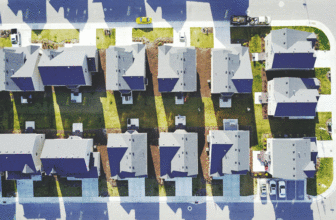
4 Investment Property Red Flags.
When it comes to building wealth, real estate offers the opportunity for enormous returns. Not only can a rental property give you monthly cash flow, but the real estate will almost certainly improve in value over time. This gives you the ability to make money off of an appreciating asset. And the fact that you can often outsource the day-to-day operations to a property manager makes the deal even sweeter. But having said all of this, you have to do your due diligence and ensure you’re actually buying a viable investment property.
4 Red Flags of a Bad Investment Property
Just because you have the opportunity to purchase an investment property, doesn’t mean that you should. Buying the wrong property can be a burden and will actually have a negative impact on your financial portfolio (both now and in the future).
The problem is that most people don’t know how to evaluate a property when they’ve never done it before. While this isn’t a comprehensive guide on how to choose a property, here are some red flags that should send you running in the opposite direction:
1. Bad Location
As you know, location is everything in real estate. When putting your money into a rental property, you have to think about all of the locational factors that will impact the investment.
For starters, be wary of investing in areas with lots of crime. Not only could this impact your safety, but it will also continue to have a negative effect on the value of the property. If you’re looking for a home with lots of bedrooms in a family neighborhood, bad schools could limit your pool of renters. Location details like these matter.
2. High Vacancy Rates
“If there are a lot of rental properties in the area and they have a consistently low vacancy rate, then it’s probably a good place to own an investment property,” Houston-based Green Residential points out. “If there are a lot of rental properties in the area and many of them are hunting for tenants, your odds of turning a profit are not so good.”
Studying vacancies in relation to the number of rental properties in a specific area – as well as the price of rent – will tell you a lot about the viability of a property you’re looking to invest in. Stay away from properties when the numbers don’t add up in your favor.
3. Thin Numbers
Everyone uses a different formula to come up with an expected rate of return or cash flow on a rental property. There are pros and cons to each of the basic formulas, but that’s a discussion for another day. In terms of evaluating a rental property, what you need to be wary of is using thin numbers to justify an investment.
“Thin numbers” is a term used to describe a tight margin on a property. If you run your projections and believe your monthly expenses (mortgage, insurance, taxes, etc.) will be $1,000 and the rent will be $1,200, these are thin numbers. (A) There isn’t enough margin to justify an investment, and (B) all it takes is one miscalculation or issue and you’re losing money on the investment.
Always run the numbers through multiple formulas and only invest when you have plenty of room for error.
4. Foundation Damage
Nothing matters more to the structural integrity of a home than its foundation. If the foundation is compromised, the rest of the house will have problems. If you run into a property with foundation problems, don’t even think about messing with it. It’s one thing to buy a primary residence at a discount when foundation issues are present, but there’s no sense in messing with foundation problems on a rental property.
Patience is a Virtue
Once you make the decision to take a deep dive into real estate investing, you want to move fast. You’re excited to get started and don’t want to delay the process any longer. But it’s important that you don’t move too fast.
In real estate investing, as in life, patience is a virtue. It’ll keep you from making a rash decision that you’ll regret at a later date. When you find a property that you like, do your research and analyze the pros and cons. If any of the aforementioned red flags emerge, move on. You’ll eventually find the perfect property for your situation.




